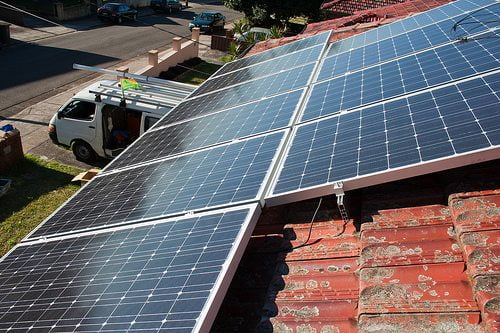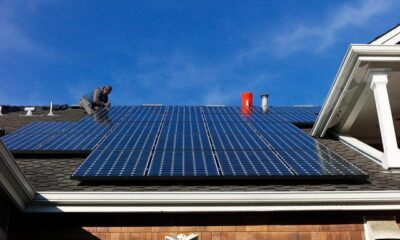

Energy
Autumn Statement: Solar industry disappointed
Reacting to minimal announcements of relevance to solar PV in the Chancellor’s Autumn Statement, the Solar Trade Association has expressed disappointment. The body has commented separately on the announcement on the Renewable Heat Incentive, which is relevant to solar thermal hot water heating.
The Department of Energy and Climate Change’s core budget has been cut by 22% by 2019-20, and the trade body understands that 200 staff could be made redundant.
Paul Barwell, CEO of the Solar Trade Association commented: “Energy policy is a highly technical and complex policy area where in-depth analysis of every sector is needed in order to avoid costly errors. Cutting this many staff could end up being a false economy for the Chancellor.”
It was confirmed that energy would be excluded from the Enterprise Investment Scheme (EIS), the Seed Enterprise Investment Scheme (SEIS) and Venture Capital Trusts and that community energy will no longer get tax-advantaged venture capital and Social Investment Tax Relief (SITR). This was expected.
Leonie Greene, Head of External Affairs at the Solar Trade Association said: “We hope communities will benefit from tax relief when debt-based investment instruments are included in ISAs from next April, as seems likely. We know crowd-funding of local solar projects is already very popular with the public and ISAs should make public investment in local solar projects, if and when viable, even more attractive.”
The Solar Trade Association has been asking for Enhanced Capital Allowances of 100% in the first year for a project as is the case for fossil fuels and Energy from Waste heat. Solar is currently discriminated against under Capital Allowances, where 18% of expenditure can be taken as a tax deduction for general plant and machinery, including for wind, yet solar receives just an 8% allowance. The Autumn Statement announced only that businesses in certain Enterprise Zones will be able to claim 100% Enhanced Capital Allowances.
Leonie Greene continued: “Climate change means we should tilt the playing field towards renewables as fossil fuels are not paying their true costs. Something has gone very wrong when solar is actively discriminated against in the tax system compared to fossil generation. New large-scale solar currently has no public support. As an absolute minimum solar projects should receive the same tax benefits as other energy technologies such as oil, gas and energy from waste.”
The Solar Trade Association was also hoping for a number of other measures in the Autumn Statement, such as extending Real Estate Investment Trusts(REITs) to solar power, and clarity on the Levy Control Framework post 2020 and more information on the National Infrastructure Commission’s role. The body is also very keen to see the Business Efficiency Tax Review support solar investment in the commercial sector in next year’s budget.
The Chancellor announced that investment in renewables and low carbon would apparently double to 2020 but the assumptions used are unclear as solar under the Feed-in Tariff faces a 98% cut in expenditure to just £7m over three years.


 Environment12 months ago
Environment12 months agoAre Polymer Banknotes: an Eco-Friendly Trend or a Groundswell?

 Features11 months ago
Features11 months agoEco-Friendly Cryptocurrencies: Sustainable Investment Choices

 Features12 months ago
Features12 months agoEco-Friendly Crypto Traders Must Find the Right Exchange

 Energy11 months ago
Energy11 months agoThe Growing Role of Solar Panels in Ireland’s Energy Future




























